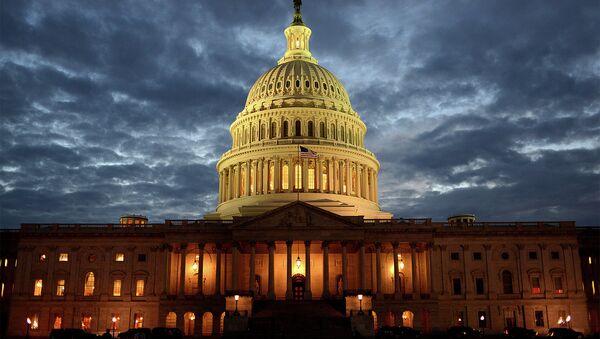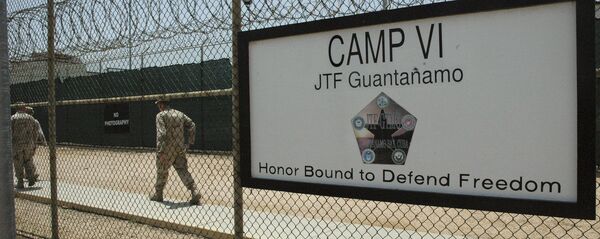WASHINGTON (Sputnik), Leandra Bernstein — Two weeks after returning, the Congress must file their final vote on the Iran nuclear agreement on September 17, and also pass a federal budget by the end of September or face a government shutdown.
IRAN NUCLEAR AGREEMENT DEADLINE
In testimony to the Senate on July 14, former State Department official Robert Burns told members of the Senate that their vote on the Iran nuclear agreement "will be one of the most consequential and important votes that any of the members take in your time in office."
With the September 17 final Iran vote looming, both the White House and the Republican party have planned a final blitz to rally support from undecided members of the Congress and the US public.
The White House, which has referred to the deal’s opponents as "pro-war," is continuing their push for support on Capitol Hill until the final vote. Their lobbying campaign will continue despite reaching a major milestone, securing public support from 34 senators, a tally that guarantees the successful passage of the nuclear agreement and US sanctions relief.
US President Barack Obama remains prepared to veto a resolution of disapproval from the Congress, unless he can secure an additional 7 votes in the Senate, which will make a vote of disapproval impossible.
Senate Majority Leader Mitch McConnell has also scheduled a full session on the Senate floor for the week of September 7 to give all members the chance to speak and listen to arguments for and against the agreement.
BUDGET DEADLINES
With the new fiscal year beginning on October 1, the US government is again threatened with the specter of a government shutdown.
If the Congress is unable to pass a $3.8-trillion budget through both the House and Senate by September 30, the federal government will either shut down, or members of Congress will have to pass a short-term spending bill, as they did last year.
Since Republicans took the leadership of both the House and the Senate in January 2015, Majority Leader McConnell has repeatedly said his party will not shut down the government. Between partisan opposition to fund certain federal programs, and a presidential veto threat on the defense spending bill, as well as the limited number of days to pass the budget, the likelihood of a budget impasse and government shutdown becomes increasingly likely.
In recent months, federal funding for the women’s health provider Planned Parenthood has become interwoven with the budget debate. Republicans in the House and Senate have threatened to hold up the passage of a federal budget if it allocates money to the controversial healthcare provider.
Leading a team of conservatives calling for defunding Planned Parenthood, Senator Cruz has publicly stated that it would be "nonsense" to blame his faction for a government shutdown.
The other financial deadline facing Congress at the end of September is raising the borrowing limit, or the debt ceiling, for the US Treasury.
In August, the Congressional Budget Office (CBO) published a report explaining that the Treasury could use "extraordinary measures" to continue operations into November, beyond the October 1 debt ceiling deadline. The CBO warned that a failure to raise the debt limit could lead to "delays of payments for government activities, a default on the government’s debt obligations, or both."
CYBER LEGISLATION
Prior to the August recess, the Senate leadership mounted a hurried push to pass the controversial Cybersecurity Information Sharing Act (CISA) that would authorize information sharing between the US government and the private sector.
Most lawmakers and Obama administration officials argue for the importance and timeliness of new cybersecurity legislation, particularly after more than 22 million federal employees had their data jeopardized with the Office of Personnel Management hack in April.
In early August, Senator and privacy advocate Ron Wyden denounced CISA as "a surveillance bill."
On August 3, an official at the Department of Homeland Security sent a letter to members of the Senate warning the new law "could sweep away important privacy protections."
Ahead of the recess, Senate Majority Leader McConnell committed to holding a vote on CISA when the Senate returned for business the second week of September.
STATE VISITS
The September legislative calendar will also be broken up by a number of high-level foreign officials coming to Washington. On September 24, Pope Francis will visit Capitol to address Congress.
Chinese leader Xi Jinping is also scheduled to meet with President Obama in September, his first visit to Washington as president. Xi’s visit comes amid growing criticism by US lawmakers over China’s alleged role in cybertheft, and concerns over China’s military posture relative to US allies in southeast Asia.





